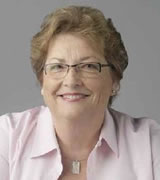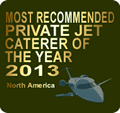| BlueSky Business Aviation News | ||||||||||||||||||||
| . | ||||||||||||||||||||
The 'what if' list goes on and on. What if Maintenance didnít quite finish a repair before departure and ended up with a few extra screws, or what if the dispatcher thought the pilot could get the overflight permits once he was airborne; what if the inflight caterer knew nothing about specialized packaging or seasoning to provide optimum capabilities on board? The secret to eliminating all of these 'what if' issues is training . . . and absolutely no one is exempt from it. We all need training over and over until the systems become second nature. In a crisis or in the heat of an emergency we all react by instinct. Donít you think it should be a trained instinct response? Are you going to panic and scream or handle the situation in a calm systematic manner as you have been trained? Reports from crash survivors, professional aviators faced with an emergency say, ď I just did it, I donít remember thinking, I just did what I had been trained to do. ď So what happens if you donít seek out the very best of training for your flight department, flight crew, caterers, schedulers and maintenance staff? I was part of a discussion today where the common thread was the importance of training, not just one type, but cross training among all areas. Let me start with the flight attendant/ flight technician. That person is the eyes and ears in the back of the cabin. They need training on food safety and hygiene, on the new OSHA regulations relating to blood pathogens, chemical and other hazmat materials ( such as dry ice?) and hearing protection. I canít help but wonder why OSHA neglected to mention food safety and hygiene training. If that is not enough, they need to be trained in what/how to notify the cockpit if they see something not quite right on the wings, i.e., there is a bit more ice on the wings than normal. It might be an almost undiscernible noise that signals a leak or electrical short-circuit that could lead to a fire. They need emergency training. They need training in the onboard technology .The electronics on aircraft are high tech and the cabin crew is expected to know how to operate them and do minor fixes while in flight. Crazy thought . . . I donít see them learning this while they sleep at night . . . it requires training and cross- training between the different fields of the aviation world. After all, the cabin crew arenít just there to just serve tea and coffee - but to save lives and prevent accidents. For that matter, everyone needs to be trained in multiple areas to be well rounded. How can you expect to have the dispatcher order catering for a multi- leg flight from the first departure city in the morning if they have no refrigeration, no gasper drawer, no cooler bags and no ice packs? Did we forget to teach her the basic principles of food safety? This team member must know to request that the food arrives in a cooler bag packed with ice packs to maintain the correct storage temperature of food. What if the dispatcher (or even the pilot) asked for the fish to be delivered raw so it can be cooked on board by the passenger who has no training in the proper cooking temperatures and the use and care of the oven? I wonder how that will increase the potential for disaster! How can a pilot keep the food chilled until ready to eat without knowing how sick one can become when that food sits out all day and someone decides to eat it for dinner at the hotel? Are they thinking outside the box and locating one of the coolest areas of the cabin when no other chilled space is available - behind the door under the insulated cover. It is not perfect, but better than strapped into a seat. I realize I'm just asking questions, but I want you to think about it for a minute. 'What if'? There is not one job in aviation - working directly or indirectly with aviation - that doesnít need training to identify potential risks and mitigate them. How can we expect a person to know any safety risk issues without offering them the appropriate training? When we look at the company safety culture - and if you really give some thought to it - it should be all about safety. Do they have all the pretty pages in the ďbookĒ ready for the inspectors and never open those books, or do they insist on following the standards set out in the ďbookĒ, following them all the time? Wouldnít it be awesome to attend the flight attendant conference and receive training in the on board electronics by the maintenance crews that actually have to solve all the common problems. How about training from the Dispatchers on the work that they must do to get a mission completed. Even from emergency medical professionals on how to operate a defibrillator or perform CPR. I'm not sure about you, but if I need that type of help, I sure donít want an untrained person attempting to replicate what they witnessed in the movies. I donít want an untrained person cooking in the back of the cabin, at home, or at the hanger without knowledge of safe food handling practices through the entire cold food chain, would you? We donít want an emergency to occur and find the cabin or ground crew taken off guard without any knowledge of what to do. And letís look at some of the vendors in aviation . . . I want my aviation caterer to know how to cook and chill before loading food on board. Training is not sitting through a class of 'how to' but repetition of practice ' doing it'. The knowledge is out there, scholarships are available and sadly many go unclaimed because you may not know where to look. Check the NBAA website and search all committees for scholarships. I heard today that the Schedulers and Dispatchers Committee had several flight attendant training scholarships this year. Flight Attendants Conference has Women in Aviation Scholarships available for subjects that range from type ratings, to a dispatchers license, to AP training to food safety training. Look, ask, and search for training I personally do not want a single day to pass without learning something new, it keeps me alive and young at heart as long as I feel I am never fully trained. Even those Subject Matter Experts can learn more. I love the quest for learning, I like the feeling that today I learned something new, that I challenged myself to know more, expanded my knowledge and skills. Look for a training mentor. In every segment of this industry, there are people in every city, every country who want to mentor others. Your age doesnít matter. Every committee within the NBAA is dedicated to training, putting people into the training pipeline to become proficient at the job they do. If I were a passenger or flight crew member and I knew my life - yes, my life and the lives of everyone on board - was in the hands of an untrained, unqualified flight crew, untrained employees at the FBO who fuel or de-ice the aircraft; untrained and unskilled maintenance staff doing scheduled repairs on that aircraft; or an untrained caterer providing the food on board loaded with unsafe amounts of bacteria, chemical contamination or foreign objects; or an untrained avionics team recently worked on that aircraft AND that the company safety culture was only for show and not practiced consistently, would I, would you, board and fly under those conditions? You must decide. How important is training to you? 'What if' there had been no training?
Let me introduce myself . . . My name is Paula Kraft and I am founder and President of Tastefully Yours Catering, an aviation specific caterer, located in Atlanta, Georgia for 35 years.
Currently I am an active member of the NBAA Flight Attendant Committee Advisory Board and the NBAA International Flight Attendant Committee, Women in Corporate Aviation, Women in Aviation International, National Association of Catering Executives, International Flight Catering Association, the International Food Service Association and the International Catererís Association. I have coordinated training programs and clinics for NBAA, EBAA and BA-Meetup conference attendees for over 10 years, created mentoring programs for caterers and flight attendants to broaden their aviation culinary skills, and to assist them in adapting to the unique challenges and constraints found in catering for general aviation. I recognize the need for training and have worked closely with flight departments, flight crews, schedulers and customer service reps at the FBOs to ensure that catering specific training provides information and skills necessary to reduce risk while assisting them in their job duties that include safe food handling, catering security, accurate transmission of food orders, and safe food production, packaging and delivery. I fell into aviation catering quite by accident. I was the in-house caterer and bakery supplier for Macyís department stores in Atlanta when catering was ordered for a Macyís customer which was soon to change my life. After the client enjoyed the catering provided, I was summoned to the clientís corporate office to provide several of the items delivered through Macyís to the executive dining room. Within a week, I was providing food for the flight department and my first order was for the President of a foreign country (as I was too be told soon after). So, here I am, some 35 years later, still loving every minute of every day in aviation catering.
|
||||||||||||||||||||


